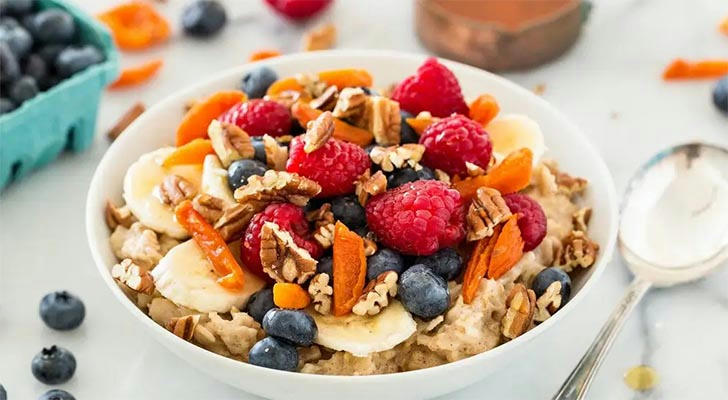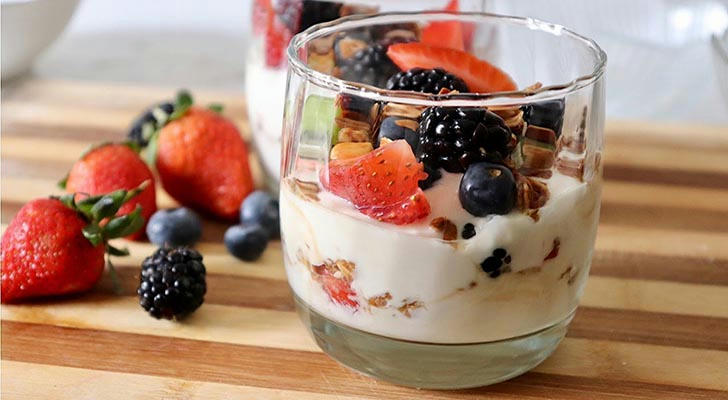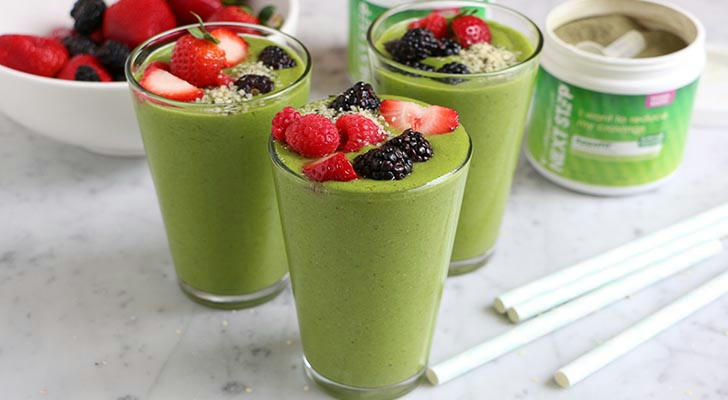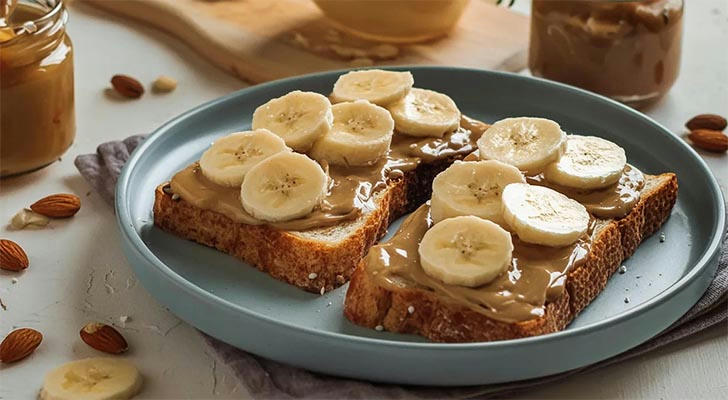Breakfast Guide for Diabetics: Keep Blood Sugar Stable and Enjoy a Healthy Life
Breakfast is the most important meal of the day, especially for diabetics. A balanced breakfast helps stabilize blood sugar levels, provides essential energy, and keeps you full until lunch. By choosing a reasonable breakfast, you can effectively control blood sugar fluctuations and ensure full energy throughout the day. Here are some of the best breakfast options for diabetics:

1. Oatmeal with nuts and fruits
Oatmeal is a high-fiber food that delays digestion and absorption and helps stabilize blood sugar. Pair oatmeal with nuts and fruits to make a nutritious breakfast. Nuts provide healthy fats and protein, while fruits add natural sweetness and antioxidants.
•Nutrition information: about 250 calories per serving, 8 grams of protein, 5 grams of fat, 40 grams of carbohydrates, and 10 grams of fiber.

2. Egg and vegetable pancakes
Eggs are an excellent source of protein, and vegetables provide fiber and a variety of nutrients. Mix eggs with vegetables such as zucchini and tomatoes to make low-carb pancakes. This breakfast is not only delicious, but also provides enough energy.
•Nutritional information: about 160 calories per serving, 16 grams of protein, 5 grams of fat, 13 grams of carbohydrates, and 3 grams of fiber.

3. Greek yogurt with berries
Greek yogurt is rich in protein, and berries provide natural sweetness and antioxidants. This combination is perfect for breakfast and can help you stay full and provide enough energy. The antioxidants in berries can also help protect the body from oxidative stress.
•Nutritional information: about 200 calories per serving, 20 grams of protein, 5 grams of fat, 25 grams of carbohydrates, and 5 grams of fiber.

4. Avocado toast
Avocados are rich in healthy fats and fiber, and paired with whole-wheat bread, they provide complex carbohydrates. This breakfast is not only delicious, but also helps stabilize blood sugar levels. The healthy fats in avocados can also support heart health.
•Nutritional information: about 257 calories per serving, 6.9 grams of protein, 16.3 grams of fat, 24.3 grams of carbohydrates, and 11.2 grams of fiber.

5. Spinach, berry and protein powder smoothie
Mix spinach, berries and protein powder to create a balanced meal that's easy to digest. Spinach provides iron and other essential nutrients, while protein powder enhances satiety and muscle repair.
•Nutritional information: about 250 calories per serving, 20 grams of protein, 5 grams of fat, 30 grams of carbohydrates, and 6 grams of fiber.

6. Whole-wheat bread with almond butter and banana slices
Almond butter is rich in healthy fats and protein, and bananas provide natural sweetness and potassium. Paired with whole-wheat bread, this combination is not only delicious but also provides steady energy.
•Nutritional information: about 300 calories per serving, 8 grams of protein, 16 grams of fat, 35 grams of carbohydrates, and 6 grams of fiber.

7. Sweet potato and black bean pancakes
Sweet potatoes are rich in complex carbohydrates and fiber, and black beans provide protein and a variety of nutrients. This breakfast is not only nutritious, but also helps stabilize blood sugar levels. The beta-carotene in sweet potatoes can also support healthy vision.
•Nutritional information: About 220 calories per serving, 10 grams of protein, 5 grams of fat, 30 grams of carbohydrates, and 5 grams of fiber.
Breakfast Tips
Focus on fiber: Choose whole grains, fruits, and vegetables to help slow digestion and improve blood sugar control. These foods are not only rich in fiber, but also provide a variety of essential nutrients.
Add protein: Adding protein to breakfast can increase satiety and help stabilize blood sugar levels. Good sources of protein include eggs, milk, and lean meat.
Limit added sugar: Avoid sugary cereals, cakes, and sweetened beverages, and choose naturally sweet fruits to satisfy your sweet tooth.
Pay attention to portion size: Control your carbohydrate intake to ensure that breakfast provides the right amount of energy and avoid overconsumption that can cause blood sugar spikes.
Stay hydrated: Start the day with water or unsweetened beverages. Staying hydrated helps overall health and blood sugar stability.
Additional Tips
Plan ahead: Prepare breakfast ingredients before bed to save time and ensure balanced nutrition.
Choose low GI foods: Low glycemic index (GI) foods can help slow the digestion and absorption of carbohydrates, keeping blood sugar stable.
Maintain consistency: Keeping breakfast at the same time every day can help regulate your body's metabolism and blood sugar levels.
Conclusion
A balanced breakfast is essential for people with diabetes. By incorporating high-fiber foods, lean protein, and healthy fats into your breakfast, you can help stabilize blood sugar levels while enjoying a delicious meal. Whatever breakfast you choose, these ideas will set a positive tone for the rest of your day! In addition, maintaining healthy eating habits not only improves blood sugar control, but also improves overall health, enhances quality of life, and reduces the risk of complications.
